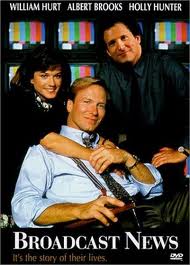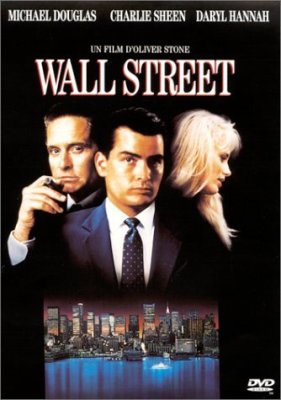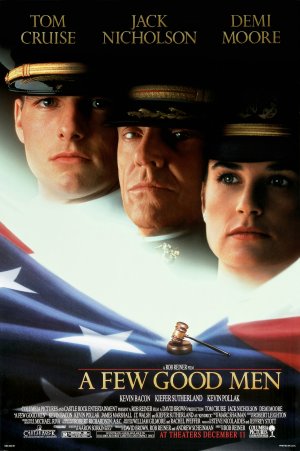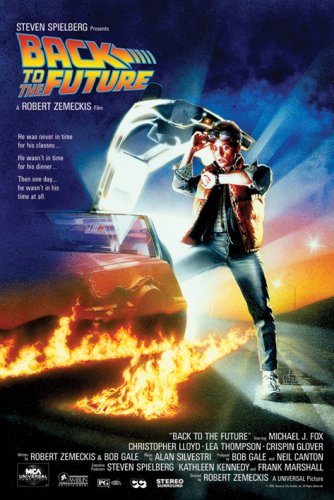
Fox’s ‘Succe$s’ secret
is having nothing to lose
OK, so Brantley conquered the Pemrose Corp. boardroom — what’s Christy doing there?
“The Secret of My Succe$s,” the first of two appealingly light films in the late 1980s/early 1990s featuring Michael J. Fox as an ambitious Manhattan go-getter, is one of those films that defies critics with the passage of time and enjoys the status of “endlessly watchable.” The movie, like its plot, is a celebration of winging it — after all, what’s the worst that can happen?
Acclaimed critic Roger Ebert gave the film a meager 1.5 stars. Acknowledging the script’s roots in the “How to Succeed in Business Without Really Trying” genre, Ebert ignores the only flaw that actually matters — that chemistry-free Christy doesn’t deserve Brantley and surely doesn’t have the chops to win a takeover battle.
Fox, underestimated his whole career (likely for two reasons, his enormous sitcom notoriety in the not-particularly-edgy “Family Ties” and his remarkably boyish appearance), carries the entire movie, something Charlie Sheen (who coincidentally shared TV’s “Spin City” stardom with Fox) in “Wall Street” failed to do. This time Fox is without a landmark sidekick in Doc Brown but lifts a spotty supporting cast that does just enough things right.
Fox recognizes the wide latitude of artistic license available here. There is no way a person such as Brantley should possess this combination of confidence and ambition, but he does, because we only need to see him reach the top, and we like the way he does it — pushing the envelope, bending protocol, hard work, clever, bold. Brantley’s social values may be highly dubious but his sex shenanigans feel almost deliciously justifiable; he worked himself into the fast lane and this is what happens. This is no message tale about greed or fidelity, but the latter helps supply the necessary motivations for keeping certain essential characters apart.
Few know or recall that “Succe$s” (April 1987) was released well before “Wall Street” and “Working Girl,” more celebrated films of the time also depicting a person climbing the Big Apple corporate ladder through dubious means. Yet the latter two were treated grandly by the Academy Awards, whose understandable slight to “Succe$s” is an utter lack of recognition that sometimes, a movie should just be fun.
Given that “Success” was released eight months before “Wall Street,” it is remarkable how many sequences in the two films are similar. In each, the goal of the young protagonist is to charm a secretary well enough to get inside an executive’s office. Once inside, he must prove himself. For Bud Fox it’s a stock tip. For Brantley Foster, it’s a charming, desperate persistence appropriate for this film that wouldn’t fly for a moment in Gekko’s suite (although one wonders if Bud should’ve told Gekko he just quit Jackson Steinem and has nowhere else to go; he could’ve likely done better than the mailroom).
Both protagonists are after the boss’ mistress. (Neither is doing himself a favor by succeeding in this endeavor, though one of the scripts disagrees with that.) Each film depicts the protagonists as living in cheap, tiny apartments on dicey blocks, yet walking to their office in sharp suits amid Manhattan streetscapes. “Wall Street” is infinitely more effective here, opening the movie this way in stunning visuals of the simple excitement of going to work in a big city for a single day. Brantley’s Manhattan is adequate but could well be Phoenix or Charlotte, with generally uninspiring dawn and nighttime visuals and a pre-Giuliani urban environment undisturbed only by perfunctory stickups that feel as artificial as they look.
Both Brantley and Bud Fox are ultimately seduced by the weekend estate. Gekko’s is in the Hamptons; Uncle Howard’s is in Litchfield, Conn. This is what real corporate wealth looks like, a country home with acres of land, swimming pool, tennis court, expensive art, acclaimed Wall Street financiers dropping by on Saturdays. The flip side is the nonstop late (and early) hours, either studying corporate reports or supervising housekeeping at a law firm. Both Fox and Charlie Sheen are shown being forced to exercise with their boss, a more vigorous physical figure, in scenes that convey a hierarchy.
While effective punch lines in “Succe$s” are delivered by many, the best supporting character by far is Margaret Whitton’s Aunt Vera, who owns the corners of the screen like few vixens and employs the most perfect psychological and physical pressure. The problem is that Aunt Vera is savvier than Christy and much more deserving of a high management position. She’s got an answer for everything and is unflappable in the most high-stress situations. Best of all, unlike Christy, she doesn’t actually listen to Howard’s dim-witted ideas.
Helen Slater, an actress who had the starring role in “Supergirl,” mostly views Brantley as kryptonite. Their initial meeting, over a drinking fountain, is uninspired, and what she offers Brantley other than magazine-cover visuals is a mystery. He can surely do better, likely with some of the other attractive women just a few cubicles down the hall. Christy has no heart, no values, and, given her steadfast resistance to Brantley’s wise expansion plan, possibly no brain. Only fatigue from a long night of work wears down her romantic defenses. She even credits Howard, in her break-up call, for boosting her career. “I’ll always be grateful to you for the chance you gave me in this company and the things I’ve learned,” said the female exec whose only notable contribution is availability for sleeping with the boss, who according to previous testimony in the film does this all the time with various women.
The character analysis of Christy likely comes down to “best offer.” For the longest time, Howard and his knuckleheadedness is apparently her best bet, until someone surfaces who appears to have a better idea, is far more age-appropriate, and most important of all, actually single. Christy’s look is one of constant skepticism that is occasionally supposed to light up with passion but mostly conveys a goofy astonishment. Rooting for Christy is practically like rooting for Darien in “Wall Street.” This is the difference between “Succe$s” and Fox’s later Manhanttan hit with a similar theme, “For Love or Money,” which has a less-punchy script but delivers believable chemistry with Gabrielle Anwar.
“Success,” from a story by AJ Carothers, who wrote the screenplay with Jim Cash and Jack Epps Jr., curiously opens not with Fox but his parents in Kansas, feebly trying to draw contrasts to the big city. Then there are slightly confusing flashbacks once Brantley arrives in the Big Apple, a questionable move by director Herbert Ross. It seems an “Urban Cowboy”-style opening would work well here, take Brantley to the airport in Kansas, give him Uncle Howard’s number at the last minute, and then leave Kansas behind.
The script embarrassingly calls for Brantley to talk to himself a couple times early; once with flimsy eye-opening recognition of NYC street freaks (“Well Toto, guess we’re not in Kansas anymore”) and again in his new apartment, which Ross decides requires several scenes to really hammer home the fact this is a low-budget environment. Even those underqualified for mail-room duty can realize the film thrives when Brantley is at the office and stalls when he’s anywhere else.
“Succe$s” thrives on the corporate fantasy. Everyone would like to hustle and brainstorm his way into a corporate office (how does a fictitious person, in a building of 30,000 employees, manage to be one of the 12 invitees to a high-level executive session) and tell off the buffoons he works with. “Well then Mr. Prescott hasn’t thought things through very well” … “’cause you keep saying such stupid things,” Brantley says. His audacity would be unbelievable except for the wide artistic license that corporate buffoonery offers, when one considers all of those people working at Enron, the notion of everyone on a floor failing to notice a mail-room worker squatting in an office seems plausible.
Ross certainly could’ve employed fewer chase scenes and stuck elevators. He blatantly confuses the roles of executives and boards of directors, not that that matters. One of the most disappointing scenes is Brantley’s realization of the empty office. The phone rings, and it’s a frustrated customer who happens to be a tired Vinny caricature. Who Brantley purports to be at this stage and what he purports to be doing and how he purports to be authorizing it are left to the imagination. Viewers get the bare minimum of what they need here; Brantley is seizing the day, with astoundingly less panache than Bud Fox’s brilliant assessment of how a cleaning crew gets close to sensitive data.
But the snappy pace of “Succe$s” overcomes its inadequacies like a speeding car dodging potholes. A couple of times Brantley appears busted by Uncle Howard, but the script throws a curve. Supporting characters deliver an assortment of punch lines; many of the best are from Whitton, but a few come from “God” in the mail room and others in the boardroom, including a hilarious deadpan from the character known simply as Davidson, who observes, “I’m too old to look for another job; nobody in their right mind would hire me.”
Ebert complains the script seems stuck in the ’50s, and he has a point. Brantley asks his secretary to order lunch for him (“Chinese”) and take his laundry to the cleaners. Aunt Vera scoffs that Howard is probably seeing another “teenage airhead from the steno pool.” Christy notes “I’m just about the only woman executive at Pemrose.” But in fact there are more references that anchor the film in the ’80s. Brantley is dealt an affirmative-action setback regarding a position that supposedly would be great for him. Hostile takeovers are presented as the real villain here — the first cost Brantley a job; the last threatens to do the same, although generally mail rooms are probably not high on the synergy list.
Richard Jordan’s Uncle Howard is thrown a screwball by the script, which sets out to portray him as an oafish tyrant, only to alternate almost immediately with cunning, crafty operator who actually has a heart — he does exactly right for Brantley in the beginning, giving him a chance but only on the very ground floor. There are times Uncle Howard would seem great to work for; most of the time he’s too inept to figure out how to meet one of his own “executives.”
The secret of "Succe$s" is that it never gives up. Brantley got exposed, got fired, and still got the company and the girl. Like Brantley, the film isn’t really qualified to succeed, but somehow it does.
3 stars
(January 2013)
“The Secret of My Success” (1987)
Starring Michael J. Fox as Brantley Foster/Carlton Whitfield ♦ Helen Slater as Christy Wills ♦ Richard Jordan as Howard Prescott ♦ Margaret Whitton as Vera Prescott ♦ John Pankow as Fred Melrose ♦ Christopher Murney as Barney Rattigan ♦ Gerry Bamman as Art Thomas ♦ Fred Gwynne as Donald Davenport ♦ Carol-Ann Susi as Jean ♦ Elizabeth Franz as Grace Foster ♦ Drew Snyder as Burt Foster ♦ Susan Kellermann as Maureen ♦ Barton Heyman as Arnold Forbush ♦ Mercedes Ruehl as Sheila ♦ Ira B. Wheeler as Owens ♦ Ashley J. Laurence as Vernon S. Fletcher ♦ Rex Robbins as McMasters ♦ Christopher Durang as Davis ♦ MacIntyre Dixon as Ferguson ♦ Bill Fagerbakke as Ron ♦ Jack Davidson as Davidson ♦ John Bowman as Proctor ♦ Jeff Brooks as Executive ♦ Ascanio Sharpe as Executive ♦ Don Amendolia as Executive ♦ Judith Malina as Mrs. Meacham ♦ Mary Catherine Wright as Research Department Clerk ♦ Joseph Ragno as Shipping Executive ♦ Burke Pearson as Fired Executive ♦ Ray Ramirez as Liquor Store Owner ♦ Gloria Irizarry as Wife of Liquor Store Owner ♦ Mark Margolis as Maintenence Man ♦ Rick Aviles as Maintenance Man ♦ John C. Capodice as Man in KRS Building ♦ Sally-Jane Heit as Woman in KRS Building ♦ Richard Arthur Gallo as Harried KRS Executive ♦ Luis Ramos as Cuban ♦ Cindy Crawford as Herself (uncredited) ♦ R. Emmett Fitzsimmons as (uncredited) ♦ Elain R. Graham as (uncredited) ♦ Bruce McGill as W. Shaw (uncredited) ♦ Tatjana Patitz as Herself (uncredited)
Directed by: Herbert Ross
Written by: AJ Carothers (story and screenplay)
Written by: Jim Cash
Written by: Jack Epps Jr.
Producer: Herbert Ross
Executive producer: David Chasman
Associate producer: Nora Kaye
Line producer: Joseph M. Caracciolo
Original music: David Foster
Cinematography: Carlo Di Palma
Editing: Paul Hirsch
Production design: Peter Larkin, Edward Pisoni
Set decoration: Susan Bode
Costume design: Joseph G. Aulisi
Makeup and hair: Fern Buchner (makeup), Joseph Coscia (hair)
Unit production manager: Joseph M. Caracciolo
Stunts: Vic Magnotta, Charles Croughwell (uncredited), Danny Aiello III, Billy Anagnos, Nicholas Giangiulio, Lance Guecia, Don Hewitt, Jery Hewitt, Edgard Mourino, Phil Neilson, Michael Russo, Konrad Sheehan, Gary Tacon, Tom Wright





